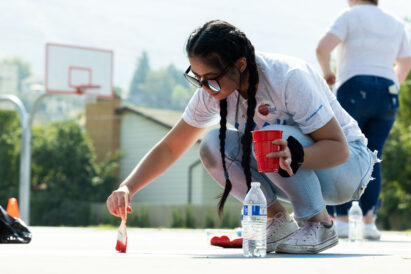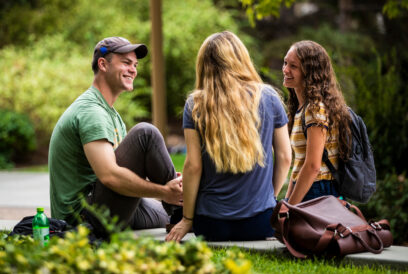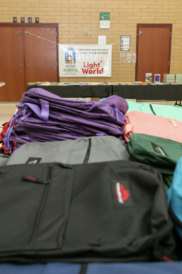BYU: Want to thrive in your 30s? Study says education, service in your 20s are key
- A new Brigham Young University study highlights how service and education during a person’s 20s can lead to greater life satisfaction in adulthood.
- A Brigham Young University study found that young adults pursuing education in their 20s are strongly linked to better emotional health and life satisfaction in their 30s.
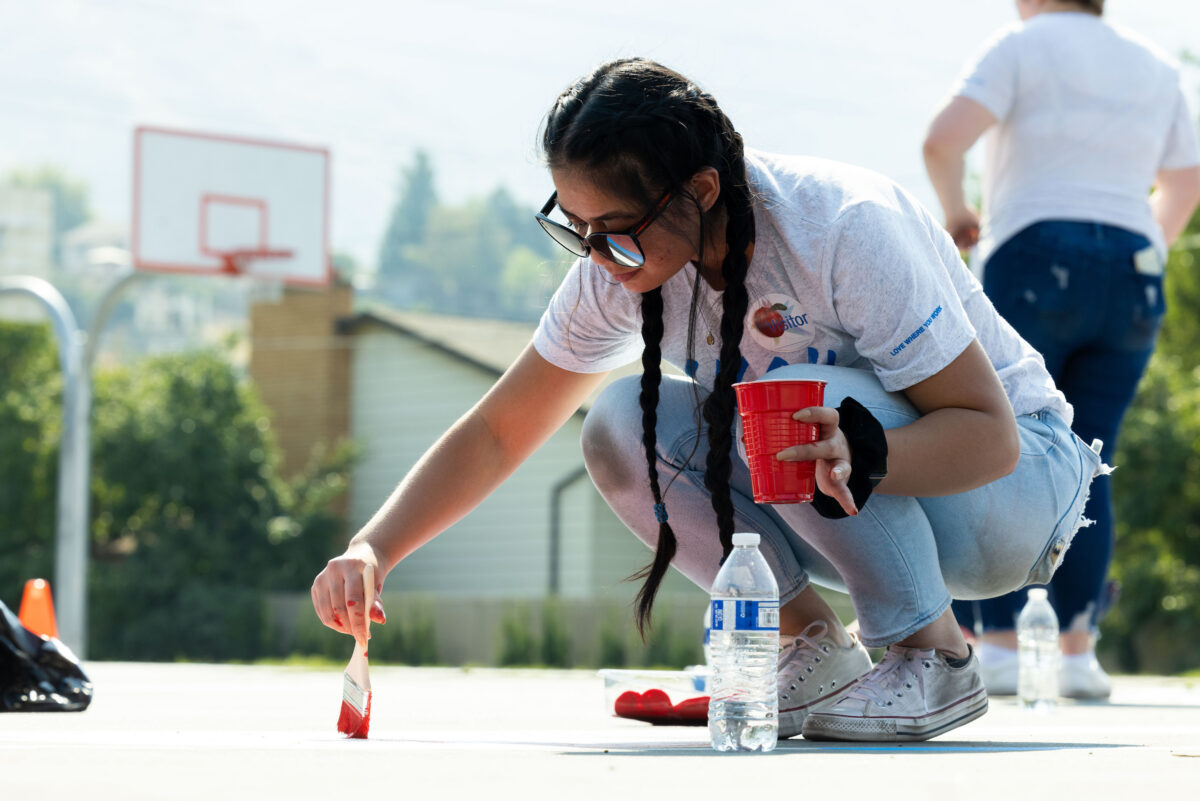
Jaren Wilkey/BYU Photo
A new Brigham Young University study highlights how service and education during a person's 20s can lead to greater life satisfaction in adulthood.
A person’s 20s are a whirlwind of choices — picking a first job, choosing an apartment, even debating whether to eat out or heat up the instant noodles in the cupboard. But beyond the daily decisions and early adult chaos, which choices actually set someone up for a successful future? A BYU study shows that education and volunteering rank among the most important choices during this decade.
The years from 18 to 29 represent a person’s first foray into adulthood. While this period offers meaningful opportunities for education and service, this same decade is also the peak period for risky behaviors like drug use and crime. That contrast is what caught the attention of BYU family life professor Larry Nelson.
“The transition to adulthood is one of the most important and challenging transitions of life,” Nelson said. “Young adults suddenly have a lot of autonomy and instability but not much support and structure. By the end of this decade, many young adults are left with addictions, health problems, lack of social networks and criminal records.”
To understand what behaviors actually impact long-term well-being, Nelson and his co-authors surveyed nearly 5,000 adults between the ages of 30 and 35. The participants were asked to reflect on their behavior during their 20s. The participants reported on their past activity in categories including education, volunteer work, video game use, risky sex and criminal activity.
“We didn’t want to only focus on negative behaviors,” Nelson said. “The absence of floundering does not mean the presence of flourishing. So just because someone avoids negative behaviors doesn’t mean they are doing well, that they’ve found purpose. They need to be proactively doing positive things too.”
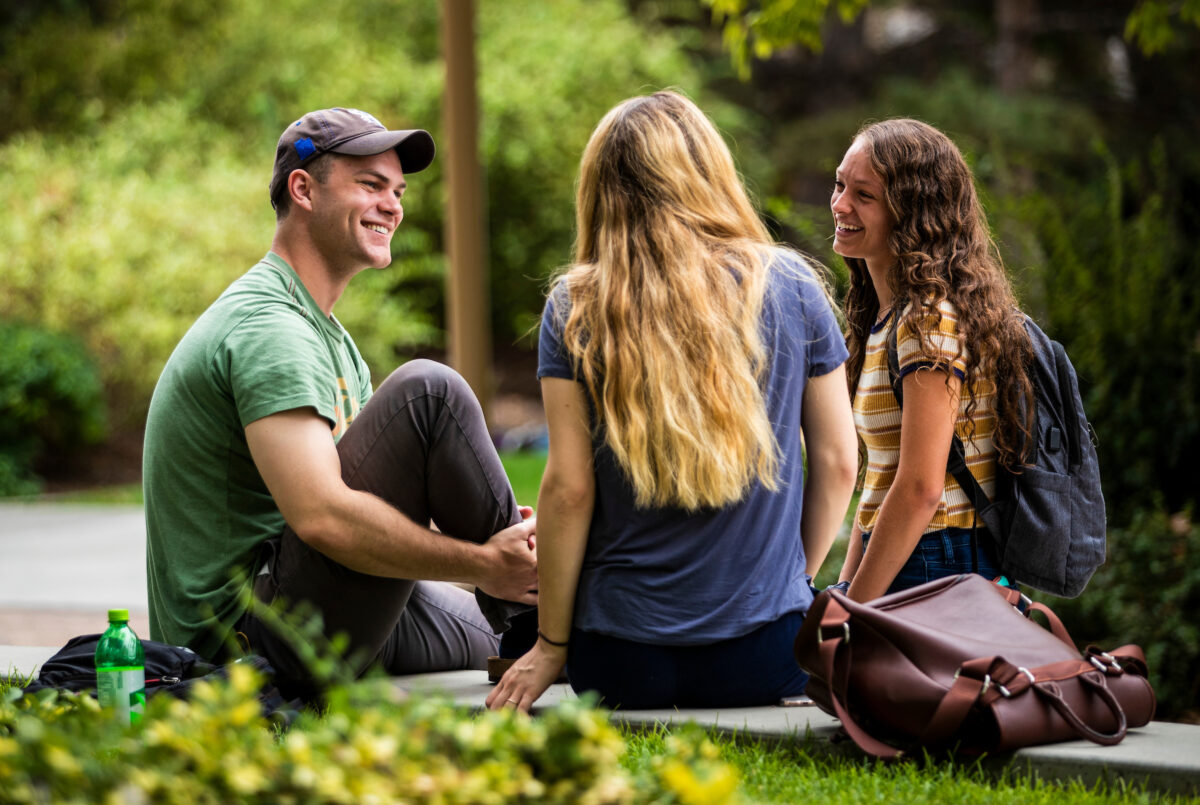
Tyler Richardson/BYU Photo
A Brigham Young University study found that young adults pursuing education in their 20s are strongly linked to better emotional health and life satisfaction in their 30s.
The researchers then looked at how those choices were connected to the following well-being indicators: life and relationship satisfaction, emotional health, general hope for the future and overall regret of the past. To get an accurate assessment of the impact of early adult choices, Nelson accounted for factors like gender, income and ethnicity.
Among all the behaviors studied, two consistently rose to the top: education and volunteering. Young adults who pursued education during their 20s reported increased life satisfaction, better emotional health and lower levels of regret. Volunteering provided the same benefits, with the addition of improved relationship satisfaction and hope for the future.
Nelson points out that education can provide tangible benefits, like steady employment and a reliable income. These factors naturally reduce stress and improve relationship quality. But volunteering, he says, offers something deeper.
“Young adults who serve and volunteer learn to look beyond themselves,” Nelson said. “Their 20s become more than a self-centered existence and they learn to think about and care for others.”
In contrast, criminal behavior was associated with lower life satisfaction and higher overall regret. A high number of casual sexual partners also resulted in lower levels of relationship satisfaction and emotional health.
For Nelson, the takeaway is clear: the 20s are not just for surviving; they’re for planting seeds that grow into thriving adulthood. He hopes this research will help young adults proactively pursue activities like education and volunteering that lead to flourishing not only in their 20s but well beyond them.
“Our message for young adults is to enjoy this time of life but keep an eye toward their future and for other people,” Nelson said. “That’s simply the best recipe for success in your 20s.”
Parents of young adults can help steer their children toward positive behaviors and activities.
“Just like we kept a steadying hand on the seat when our kids were learning to ride a bike, we need to remain a steadying and supportive influence as they become adults,” Nelson said. “We can’t and shouldn’t do things for them, but we can still be supportive. Our role as parents shifts from being their managers to becoming their consultants.”
BYU professors Mallory Millett and Laura Padilla-Walker were co-authors on the study along with former master’s student Melanie Lott.

